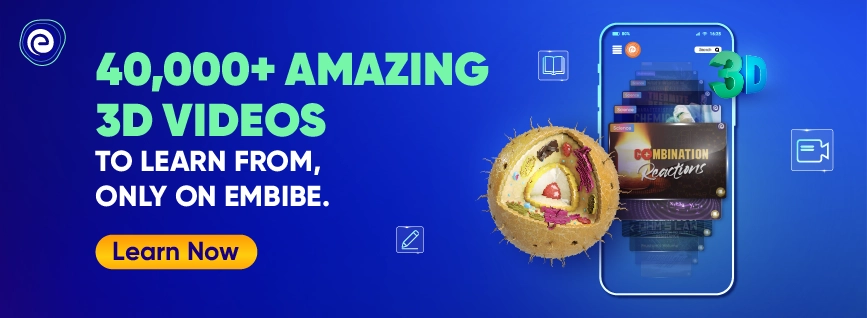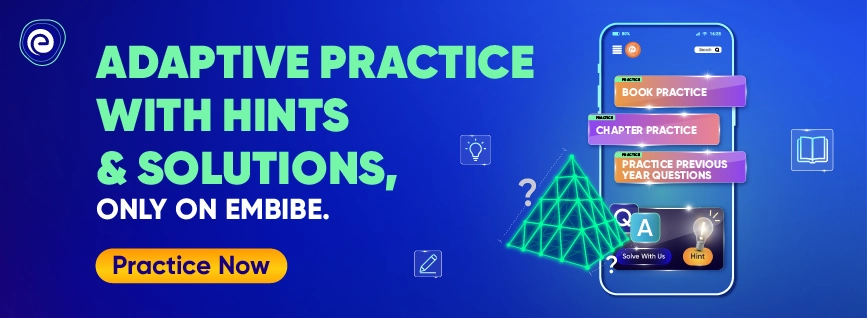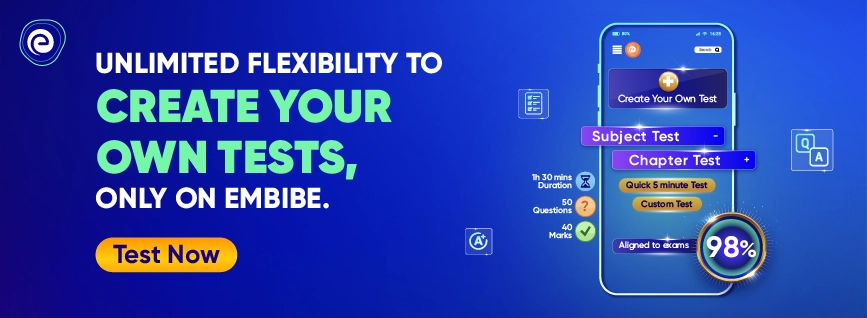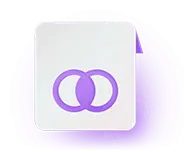- Written by nikhil
- Last Modified on 11-12-2024
Exam Brief
The Upper Secondary International General Certificate of Secondary Education Exam, or IGCSE, is conducted by Cambridge University Press and Assessment. The four stages of the Cambridge Pathway start from primary through secondary and goes on to pre-university years. The four aforementioned stages include Cambridge Primary, Cambridge Lower Secondary, Cambridge Upper Secondary, and Cambridge Advanced.
Cambridge Board Lower Secondary Stage 9 Exam is conducted after the study of the academic year of grade 9 under Cambridge Assessment International Education, and it is equivalent to grade 9 examinations like CBSE, ICSE, and all the other state board grade 9 level education in India. Hence, this is a programme leading to externally set, marked, and certificated examinations from the University of Cambridge. It is a unique UK government-endorsed programme and the world’s most popular international qualification for 11 to 14-year-olds offered in thousands of schools around the world.
Brochure
Students usually look for Cambridge Board Lower Secondary Stage 9 brochure to get all the details. Click here for the brochure for the Cambridge Lower Secondary grade.
Exam Summary
Check out the official website link to Cambridge Board Lower Secondary Stage 9 below.
Official Website Link
https://www.cambridgeinternational.org/about-us/
Exam Syllabus
Syllabus for the key subjects are given below:
Syllabus for English (First language)
| What will the students learn? |
| Learners develop English skills they can apply for a range of different purposes and audiences in everyday situations and in the study. They will communicate confidently and effectively, and develop the critical skills to respond to a range of information, media and texts with understanding and enjoyment. |
| Together, the reading, writing, speaking and listening skills acquired through Cambridge Lower Secondary English support learners’ overall intellectual, creative and social development. They will: |
become confident communicators, able to apply their reading, writing, speaking and listening skills effectively in everyday situations and in studying a range of subjects |
| see themselves as readers, engaging with a range of texts for information and for pleasure, including texts from different times and cultures |
| see themselves as writers, using the written word clearly and creatively for a range of different audiences and purposes |
| develop speaking and listening skills for effective presentation and collaboration, sharing and responding to ideas to achieve a shared understanding or goal |
| develop a broad vocabulary and an understanding of how to apply grammar and linguistic conventions appropriately |
| develop skills to evaluate spoken and written texts, making decisions about how convincingly they represent different values and opinions. |
Divided into three stages, the curriculum framework covers knowledge, skills and understanding in the three strands:
| Strand |
Learning Objective Examples |
| Reading |
Analyse how the structure of a text can be manipulated for effect in a range of fiction and non-fiction texts, including poetic forms. |
| Writing |
Make an informed choice about whether to plan before writing. |
| Speaking and Listening |
Explore complex ideas and issues in drama, establish roles and apply dramatic approaches with confidence. |
Syllabus for Mathematics
| What will students learn? |
| Students will learn to recognise the interconnections of mathematical concepts and: |
engage in creative mathematical thinking to generate elegant solutions |
| improve numerical fluency and knowledge of key mathematical concepts to make sense of numbers, patterns, shapes, measurements and data |
| develop mathematical skills, strategies and a way of thinking that will help them to describe the world around them and play an active role in modern society |
| communicate solutions and ideas logically in spoken and written language using appropriate mathematical symbols, diagrams and representations |
| understand that technology provides a powerful way of communicating Mathematics, one which is particularly important in an increasingly technological and digital world. |
| How is the programme taught? |
Thinking and Working Mathematically support the concepts and skills in all strands of this curriculum. When learners think and work mathematically, they actively engage with their learning of Mathematics. They try to make sense of ideas and build connections between different facts, procedures and concepts.
Learners who do not think and work mathematically can carry out processes that their teacher has shown them, but they may not understand why the processes work or what the results mean. Noticing inconsistencies, patterns and particular representations encourages learners to think and work mathematically. Practice, reflection and questioning will help them to improve. |
Divided into three stages, this curriculum covers knowledge, skills and understanding in four main areas called ‘strands’ that can be taught separately or together. We have embedded Thinking and Working Mathematically within and across the curriculum strands:
| Strand |
Learning Objective Examples |
| Number |
Use knowledge of square and cube roots to estimate surds. |
| Algebra |
Understand and describe? The term rules algebraically (in the form ?? ± ?, where ? and ? are positive or negative integers or fractions, and in the form, ?2, ?3 or ?2 ± ?, where ? is a whole number) |
| Geometry and Measure |
Use knowledge of area and volume to derive the formula for the volume of prisms and cylinders. Use the formula to calculate the volume of prisms and cylinders. |
| Statistics and Probability |
Understand that the probability of multiple mutually exclusive events can be found by summation and all mutually exclusive events have a total probability of 1. |
Cambridge Board Lower Secondary Stage 9 Syllabus for Science
| What will students learn? |
| This curriculum is divided into six main areas called ‘strands’: |
Biology – Living things and their interaction with each other. |
| Chemistry – The study of matter |
| Physics – The interaction of matter and energy. |
| Earth and space – planet Earth, the wider Solar System and beyond. |
| Thinking and working scientifically – Develop understanding and skills of scientific models and representations, scientific enquiry, and practical work. |
| Science in context – Unique to our Science curriculum, this helps teachers demonstrate the relevance of Science to learners. |
| How is the programme taught? |
The programme is designed to give you maximum flexibility, so you can integrate all of the ‘strand’ categories into a holistic Science learning experience.
For example, you can teach content from Biology and develop a skill from Thinking and Working Scientifically while using a context, prompted by Science in context, to make sure learning is engaging and relevant to learners. However, you can also teach content learning objectives on their own or set content in a context with no skill development.
Science is an experimental subject and learners should have many opportunities to develop their skills in scientific enquiry. Not only does this help them to experience and understand different areas of Science, but it also helps them to appreciate that scientific understanding changes over time. |
| Strand |
Learning Objective Examples |
| Thinking and Working Scientifically |
Carry out practical work safely, supported by risk assessments where appropriate. |
| Biology |
Know that chromosomes contain genes, made of DNA and that genes contribute to the determination of an organism’s characteristics. |
| Chemistry |
Use word equations and symbol equations to describe reactions (balancing symbol equations is not required). |
| Physics |
Know that energy is conserved, meaning it cannot be created or destroyed. |
| Earth and space |
Explain the movement of tectonic plates in terms of convection currents. |
| Science in context |
Discuss how the uses of Science can have a global environmental impact. |
Practice Exam Questions
Exam Blueprint
The methodology followed for classroom and external assessments for all subjects:
| Measure Potential |
Provide Feedback |
Monitor Progress |
Check Achievement |
| Cambridge CEM’s computer-based assessments for 11 to 14-year-olds help you identify and diagnose learning needs, and measure and benchmark learners’ potential. The baseline and diagnostic assessments adapt to each student’s level, quickly and accurately identifying their abilities in core academic skills. |
We encourage you to assess our creative subjects in the classroom through discussion, observation and lesson outputs as opposed to asking learners to sit a test. We provide an assessment guide to help you give formative feedback on the skills you want learners to develop so that they can reflect on, and improve, their performance. Cambridge resources also provide a range of formative assessment opportunities and full support to implement them. |
Cambridge Lower Secondary Progression Tests help you to assess knowledge, skills and understanding. Use them to check learners’ progress at any time of year, as many times as needed, throughout Stage 9. |
Use Cambridge Checkpoint to monitor individual and group performance at the end of the lower secondary programme. As the tests are internationally benchmarked, you can have extra confidence in the feedback you receive and share with parents. |
Measure
Track learners’ aptitude in core skills |
Measure
Skill development. |
Measure
Learners’ skills and understanding in English as a First or Second Language, Mathematics and Science. |
Measure
Learners’ skills and understanding in English as a First or Second Language, Mathematics and Science. |
Marking
Computer-based assessment, with results provided automatically |
Marking
By teachers. |
Marking
Marked by teachers. |
Marking
Marked by Cambridge International |
Frequency
Usually at the beginning of the end of the academic year. |
Frequency
Throughout the academic year. |
Frequency
At any time in the year, as many times as needed. |
Frequency
At the end of Cambridge Lower Secondary. |
|
Benefits
- Understand students’ potential and what they are learning.
- Helps to predict grades in qualifications such as Cambridge IGCSE, O Level and International AS & A Level.
- Plan your interventions to help students improve on areas of weakness and reach their potential in strength areas
|
Benefits
- Feedback on ‘what went well with students, and how they can improve further.
- Students can reflect on and improve their performance.
|
Benefits
- Get detailed information about learner performance.
- Compare strengths and weaknesses of individuals and groups.
- Use our clear guidance, standards and mark schemes.
- Give structured feedback to learners and parents.
|
Benefits
- See how your learners are performing against an international benchmark, and in comparison to the rest of their class.
- Easily monitor group and individual performance.
- Learners receive a statement of achievement and a diagnostic feedback report.
|
How Is the Subject of English Assessed?
| Cambridge Lower Secondary Progression Tests |
| Cambridge Lower Secondary Checkpoint |
| The system does not assess Speaking and Listening with these tests. Support materials, available on our Cambridge Lower Secondary support site, provide guidance on teaching and assessing these skills within the classroom. |
| Cambridge Lower Secondary Progression Tests |
| Cambridge Lower Secondary Checkpoint |
How Is the Subject of Science Assessed?
| Cambridge Lower Secondary Progression Tests |
| Cambridge Lower Secondary Checkpoint |
Study Plan to Maximise Score
Preparation Tips
Cambridge Board Lower Secondary Stage 9 exam is a school-level examination. Grade 9 forms a foundation for the Upper Secondary IGCSE exam. Hence, the preparation for the grade 9 exams, though it is a school-level exam, has to be done keeping in view the Upper Secondary- IGCSE next year.
Follow the tips given below to maximise the preparation.
- Go through the syllabus framed by your school and understand it.
- Understand the expected learning outcomes and assessment methodology your school has adopted.
- Discuss with your class teacher, if you do not understand something.
- Prepare the answers to the questions at the end of every chapter and book.
- Apart from the IGCSE recommended textbooks, preferably follow another textbook of any other board, international board, of the same grade.
- Practice mock tests on similar papers in class 9 grade at Embibe.
Exam Taking Strategy
- Before answering any question, interrogate the question and try to understand what kind of answer is expected. To-the-point answers need to be written.
- Make a prioritisation of the different questions that you want to answer. At the start of the exam, read the whole question paper and make a plan of priority in your mind or mark it on the question paper. Answer first, the easier ones, and then, keep attempting the more difficult ones. You can maximise your marks this way.
- If you finish answering all the questions and still some time is left, do not submit your paper and leave the examination room in advance. Check your answers, look for mistakes and correct them, if found any.
Detailed Study plan
- Be Systematic and Planned
Prepare a proper roadmap to reach your goals. Follow a structured approach for the preparation. Looking into the syllabus, the student needs to prepare a proper study routine and follow the schedule.
- Prepare Time Table
While preparing the timetable, keep in mind the following:
- Except for Mathematics, study all other subjects for 1-1.5 hours every day except the subject mathematics.
- Mathematics requires a bit more practice than other subjects, so, allocate 2 hours for practice.
- Allocate 1.5 hours for Science. Based on your requirements (like homework), allocate appropriate time for Physics, Chemistry, and Biology within this 1.5 hours.
- Give yourself about 1.5 hours for Social Science sections (History, Geography, Civics, etc.).
- Study the Literature subjects (English and the second language subject) for 1 hour on alternate days.
- Be flexible in changing your timetable based on your strengths, weaknesses, convenience, and needs. Hence, revisit and make a judgement of your own preparation level for yourself and remodel the study/revision plan accordingly.
- Do not study for more than 3 hours at a stretch. Take a 15-minute break every couple of hours.
- All Subjects are Important
Give equal importance to all the subjects (except mathematics, which may need a bit more extra time). In order to maximise your overall score in the exam and the grade, all the subjects need to be prepared with equal care.
- Self-Study Time
Students find it difficult to manage their study time as they attend school regularly. However, after school, you still have about 6-7 hours left which you can utilise for self-study. Thus, plan your study timetable for this time period.
- Homework and School Work
Revising what you have learned is important to understand your concepts. Do your homework every day. Try to complete it as soon as you reach home after school so that you have time for other activities.
- Study Material
Do not wait until the day of the exams to arrange your study material. Early preparation helps one perform well in exams. You can also refer to other textbooks but do not omit Cambridge board textbooks.
- Revise Properly
A revision plan should be an integral part of your study plan. Make a revision plan according to your strengths and weaknesses in various subjects.
Attempt Mock Tests
Frequently Asked Questions
Q1. What is IGCSE?
A. The full form of IGCSE is the International General Certificate of Secondary Education. It is a comprehensive two-year programme conducted worldwide by Cambridge University Press & Assessment. The whole programme is distributed over classes 9 and 10. The final examination will be taken at the end of class 10.
Q2. Can a Cambridge student appear in any of the Indian Competitive exams like IIT, NEET, etc.?
A. Yes. The course content of Cambridge for the Sciences and Mathematics is designed in line with the prescribed syllabus of all India open entrance tests for Engineering or Medicine undergraduate studies. All IITs and other specialized institutes recognize Cambridge.
Furthermore, this curriculum involves more practicals, and it is application based. The focus is on the student’s knowledge, reasoning ability, and problem-solving skills, which are required to clear all professional entrance exams.
Q3. Is Cambridge Board Lower Secondary Stage 9 Exam a school-level exam or a board-level exam?
A. Cambridge Board Lower Secondary Stage 9 Exam is a school-level exam, arranged by the respective schools under the guidance of the Cambridge Board.
Q4. How many times is the Cambridge Board Lower Secondary Stage 9 Exam held in a year?
A. The schools can arrange their Cambridge Board Lower Secondary Stage 9 Exam, which is held twice a year: May and October.
Q5. Who is the certifying body for Cambridge Board Lower Secondary- Stage 9 Exam in India?
A. The Association of Indian Universities (AIU) is authorised to certify the Upper Secondary- IGCSE Exam results for use for any purpose in India.
List of Educational Institutions
List of Schools/Colleges
| Sl No |
Name of the School |
Town |
| 1 |
Calcutta International School |
Kolkata |
| 2 |
The Heritage School |
Kolkata |
| 3 |
Indus Valley World School |
Kolkata |
| 4 |
Pailan World School |
Kolkata |
| 5 |
American Embassy School |
Delhi |
| 6 |
Amity Global School, Noida |
Delhi |
| 7 |
Apeejay School International – South Delhi |
Delhi |
| 8 |
British School |
Delhi |
| 9 |
Dhirubhai Ambani International School |
Mumbai |
| 10 |
NES International School |
Mumbai |
| 11 |
Edubridge International School |
Mumbai |
| 12 |
Billabong High International School |
Mumbai |
| 13 |
The Indian Public School |
Chennai |
| 14 |
Vaels High International School |
Chennai |
| 15 |
Gateway American International School |
Chennai |
| 16 |
The Lords International School |
Chennai |
| 17 |
The International School Bangalore |
Bangalore |
| 18 |
Oasis International School |
Bangalore |
| 19 |
Candor International School Bangalore |
Bangalore |
| 20 |
Inventure Academy |
Bangalore |
| 21 |
Discover Oaks International School |
Hyderabad |
| 22 |
Rockwell International School |
Hyderabad |
| 23 |
Vips International School |
Hyderabad |
| 24 |
Akshara International School |
Hyderabad |
| 25 |
Calorx Olive International School |
Ahmedabad |
| 26 |
JG International School |
Ahmedabad |
| 27 |
The Riverside School |
Ahmedabad |
| 28 |
Mahatma Gandhi International School |
Ahmedabad |
List of Future Exam
The list of future exams for a student of Cambridge Board Lower Secondary Stage 9 Exam is given below:
| Sl no |
Exam |
| 1 |
Upper Secondary- IGCSE |
| 2 |
IGCSE Stage 11 Exam |
| 3 |
IGCSE Stage 12 Exam or IGCSE A level Exam |
Even while studying in the same grade (9th), students can appear for the exams listed below for skill improvement, merit certificates and scholarships.
| Sl no |
Name of the Exam |
| 1 |
International Science Olympiad (ISO) |
| 2 |
International Maths Olympiad (IMO) |
| 3 |
English International Olympiad (EIO) |
| 4 |
English International Olympiad (EIO) |
| 5 |
General Knowledge International Olympiad (GKIO) |
| 6 |
International Computer Olympiad (ICO) |
| 7 |
International Drawing Olympiad (IDO) |
| 8 |
National Essay Olympiad (NESO) |
| 9 |
National Social Studies Olympiad (NSSO) |
| 10 |
NTSE (National talent Search Examination) |














































